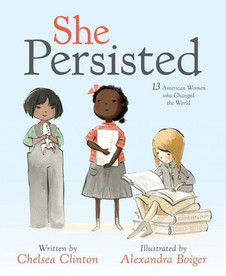










































































































































“WHY DIDN’T YOU ASK FOR HELP?”
Occasionally parents report feeling frustrated when their child tells them at night that they needed assistance at school but didn’t go to a teacher for support. Or maybe the child was busy playing a game and only remembered to tell a parent later that they had been physically hurt or were treated in an upsetting way.
Hearing these stories is a good reminder for all of us that asking for help is an important social-emotional skill that many of us as adults haven’t fully mastered.
There are countless YouTube videos for children and adults about the importance of learning to ask for support, even though it can make us feel weak and vulnerable. This becomes an important topic as we imagine children going into new classrooms and schools in the summer. Feeling confident asking questions is one of the keys to adjusting in an unfamiliar environment.
Getting children to ask for what they need can be tricky. Children, especially young ones, often don’t have the words to articulate what the issue is. As they get older, they become more emotionally invested in appearing not to need help from others.
Talking at home, or at school, about different situations when it’s important to ask for support lays the foundation for children to feel safe doing so. Roleplaying different scenarios builds confidence and a feeling of safety. Children also benefit greatly from hearing adults talk about the ways they ask for help in their own lives.
We want to cultivate the attitude that asking for what one needs is courageous.
Children at our school are actually known for their ability to speak confidently to adults when they graduate from our elementary program and enter new settings. We want to build on those successes and always be working, as a community, to expand our ability to listen to children and support them in the most effective, loving ways.
This article addresses many aspects of teaching children to ask for help.
We’ll be accepting donations for our Toy, Clothing & Book Swap through Friday. As you go through your child’s clothing in preparation for the warmer days ahead, if you come across things he or she has outgrown, consider donating them to the drive – they’ll probably be a perfect fit for another child. We’re also collecting children’s books and games in very good condition.
After the drive ends, we’ll announce the time and place where you’ll be invited to take any of the donated items you can use. Leave donations in the bins by the bike rack off the admin parking lot.
WPE General Store’s Meher Schools Roots
Most Contra Costa residents are familiar with White Pony Express, the nonprofit best known for its award-winning food-rescue program. Not as widely known is WPE’s General Store, which distributes new and like-new clothing, toys, children’s books, and games in impoverished neighborhoods throughout the county.
Few people remember, though, that the General Store had its start at The Meher Schools. It began in 2008 as a project of the Saranap Community Association to help young families during an economic downturn. Known originally as the Toy & Clothing Exchange, it was a hosted at the school, and many parents and staff members volunteered. Like our Toy, Clothing & Book Swap, Exchanges were events where parents could pick up for free things that other children had outgrown.
From “Exchange” to “Boutique”
School families donated hundreds of items. Volunteers spent weeks preparing for each event, sorting, washing, ironing, and mending donated clothing, sometimes adding a touch of embroidery or sequins, tagging items, and distributing flyers throughout the surrounding area. On the day of the event, they spent hours setting up Room 5, displaying items as they’d be displayed in a fancy boutique – and the event was soon renamed the Toy & Clothing Boutique.
The Boutiques grew in popularity. They were lively affairs, attended by dozens of school families and neighbors. Refreshments were served, and there was often live music. Sixteen Boutiques were staged between December 2008 and December 2013. The project was featured in Woman’s Day magazine in 2009.
A shift in focus
By 2013 the economy had recovered and attendance at the Boutiques was tapering off. The SCA decided to broaden the scope of the program by inviting families from low-income neighborhoods to attend. Though outreach was limited by logistical constraints, attendance doubled in less than a year, as families came from as far as Antioch to attend.
It was clear that the need for a program of this type existed, but the SCA had neither the volunteers nor the financial resources needed to take the Boutique to the next level.
White Pony Express, which at that time was solely a food-rescue program, had the means to do what the SCA could not: take the program into neighborhoods where they were most needed. It had dozens of volunteers, was well organized, and had a solid outreach program. WPE offered to take the Boutique program under its wing, and the SCA gratefully agreed.
Fast-forward to 2022
The WPE General Store now serves 120,000 people and has distributed more than 900,000 items through “Mobile Boutiques,” based on the model that evolved on our campus more than a decade ago. Today the school is partnering with WPE to collect donations for Ukrainian refugees – and we’re having our first toy, clothing, and book giveaway since 2013.
The photos below are from WPE's Mobile Boutiques over the years.


















